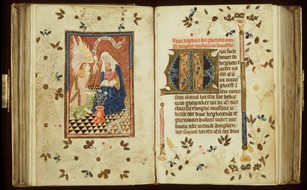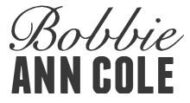If you know me at all, then you will know that I am writing a book about Mary of Nazareth. I have been worrying at this project like a dog with a bone. I do not want to let it go, despite how very challenging I am finding it.
BEING INTENTIONAL
I am in my third year of doing this(!) and the book has been through several guises in different genres, the latest of which has been an 80,000-word novel.

I resorted to fiction because of my desire— my original crusade, in fact— to present Mary as a woman who was gutsy and brave, the kind of woman who would make a strong declaration of action in her song, the Magnificat (Luke 1), in the vein of warrior, Old Testament judge, Deborah.
I wanted to smash through all the simpering, bland depictions of Mary that abound.
I still want that.
AGENCY
Without the boundaries of non-fiction, I would be free to expand on Mary’s innermost feelings as I saw them, I thought.
I sent my MSS off for a developmental edit from my favourite editor, Beth Jusino. She told me what I should have, known, as someone who teaches this stuff herself, namely that my main character, Mary, didn’t have agency.
What this means is that I failed to follow the most basic requirements of story:
- MAIN CHARACTER PROBLEM
- MAIN CHARACTER WRONG ACTION
- PROBLEM WORSENS
- RESOLUTION BROUGHT THROUGH MAIN CHARACTER RIGHT ACTION.
TRUE TO BIBLE

The difficulty I came up against was my desire to remain within the boundaries of Mary’s journey in the gospels and the Book of Acts, rather than make up situations that were not in the Bible.
This left me with a dilemma that I resolved by going back to the drawing board and planning a midrashic approach to telling Mary’s story: a Book of Hours. Now books of hours were custom ordered in medieval times by wealthy ladies. They have a fixed structure:
- Calendar, (important dates for the book’s owner)
- The Hours of the Blessed Virgin (meditations on Mary’s life) and
- Suffrage (free choice, such as favourite Bible stories).
I was mistakenly thinking that if such a book relied upon materials in the gospels and Acts, then it would be non-fiction. But, of course, my idea made no sense, since the very concept of a book of hours for Mary, who lived in 1st century Israel rather than medieval Europe, could not be real.

TWO HEADS BETTER THAN ONE
I am grateful to trainee book coach, Laura Miedema, not only for pointing this out to me but for sticking with me to develop a better concept.
I see that I need to handle Mary’s story as my story of meeting her, told for the benefit of my readers, so that they learn who Mary really was:
- a seemingly ordinary Jewish girl of deep faith, strong and bold,
- a forerunner of ourselves as modern women in a world traditionally dominated by men, (as many church denominations still are).
MIDRASH
This, then, is legitimately non-fiction, even if I write midrash – some creative exposition, like the Jewish sages have done over time immemorial to put flesh on the Bible’s barebones. This approach will allow me to imagine Mary’s world and feelings, so long as I make it clear that this is my own perspective.
Yay, I have found my genre: Biblical NF. I feel enthused, excited and liberated.
A NOTE ABOUT WHY GENRE IS IMPORTANT
- Genre is important to our reader because it gives them expectations of how the writer will approach their subject.
- It is important to. Booksellers from Amazon down to the dusty corner Bible bookstore because it informs where they shelve a book, alongside others like it, so the target reader can find it.
- It is vital to you, the writer because you need to know who you are writing for and what you want your reader to know / do / understand / feel (i.e. get our point).


Bobbie, this sounds wonderful! I am excited with you! May you be so inspired to bring to us an awesome book of Mary the mother of Jesus.
I loved your book ‘Being Lena Levi’ and look forward to reading all your books!
Be blessed dear sister in Christ and I pray for new inspiration every day!
Big hugs and lots of love.
Lynne
Thank you for your encouragement, Lynne. I’m glad you like my books. I look forward to reading yours…
Thank you Bobbie for sharing your struggle with this. It has answered my own struggle with my book on Caleb’ daughter and is exactly the same issue I had. I called it creative nonfiction. But I like your term better: biblical nonfiction.
Bless
So glad you found this piece useful, Gaetane. I look forward to our 1-2-1.
God bless,
Bobbie